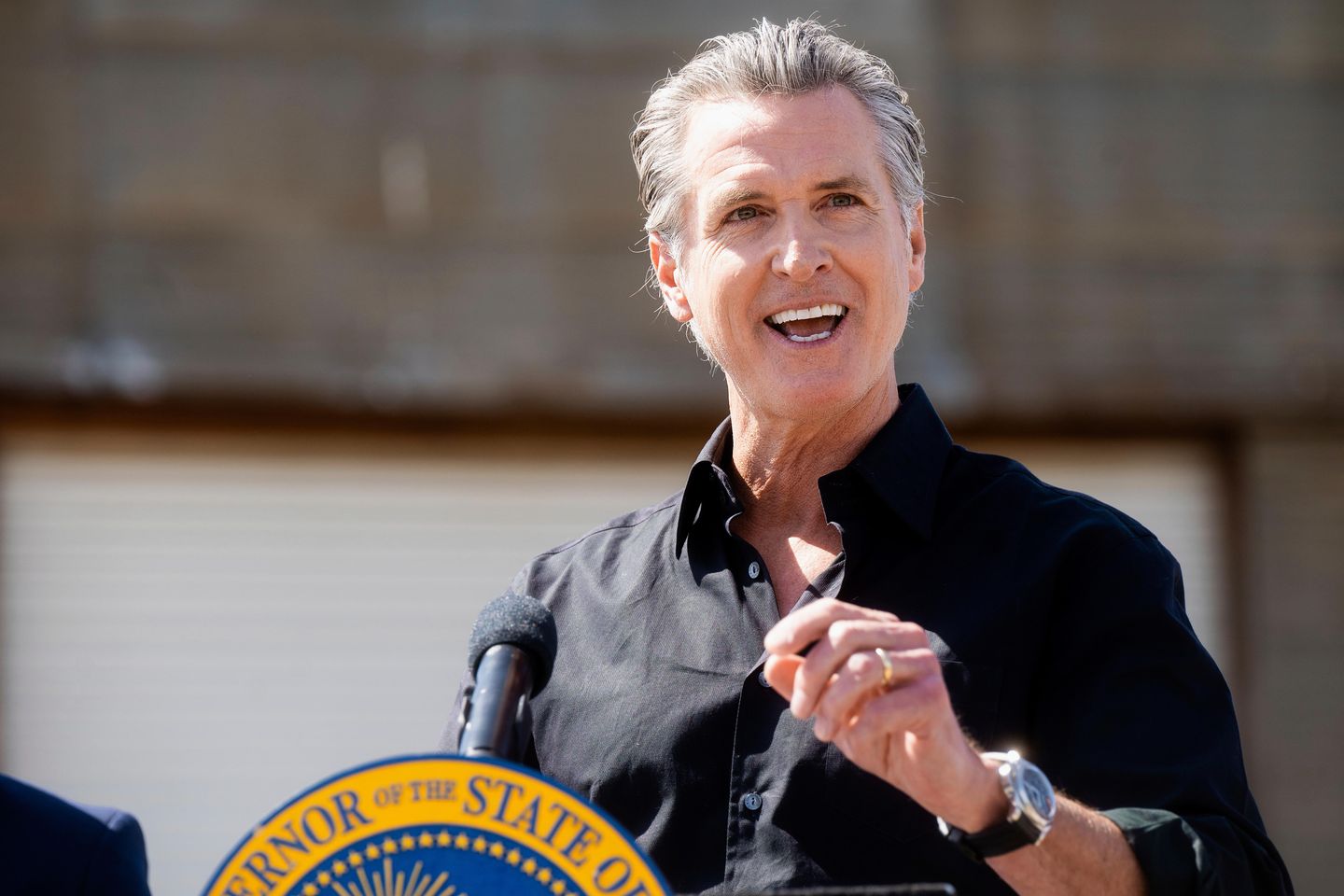
President Trump and California Gov. Gavin Newsom are moving to require generative artificial intelligence training for students and workers in a rare display of bipartisan support.
The Democratic governor announced Tuesday that state services will begin using AI, six days after the Republican president signed an executive order mandating AI literacy in K-12 education. Both decisions build on previous directives.
“We know that state government can be more efficient, and as the birthplace of tech, it is only natural that California leads in this space,” Mr. Newsom said. “In the Golden State, we know that efficiency means more than cutting services to save a buck, but instead building and refining our state government to better serve all Californians.”
The governor’s office said state agencies will be the first in the country to use generative AI to reduce highway congestion, improve roadway safety and enhance customer service in a state-run call center. The arrangement implements a 2023 executive order Mr. Newsom signed to integrate AI into public services.
Mr. Trump’s April 23 order directs the Education and Labor Departments to prioritize funding and opportunities for high school students to take AI classes and certification programs that build up a technologically literate workforce.
“This is a big deal, because AI seems to be where it’s at,” Mr. Trump said at an Oval Office signing ceremony.
Generative AI chatbots allow users who pose written or verbal questions to create text, images, and music based on an ever-expanding database of information.
A growing number of K-12 schools, colleges and employers have launched AI training programs since OpenAI’s ChatGPT took the world by storm in late 2022.
“Learning and integrating AI into education is essential for ensuring that our children remain competitive in the future,” said Peter Whitehead, CEO of Light AI in Vancouver and developer of VELscope, an AI-based dental device that screens for oral cancer. “Employers are increasingly seeking candidates with a range of AI-related skills to stay competitive in the evolving job market.”
In October, Mr. Newsom signed a law requiring AI literacy instruction in all of California’s K-12 classrooms.
The courses address the limits of AI systems, the need for ethical considerations and the practical effects of AI technologies.
Communications researcher Martin Mehl, a scholar-in-residence at California Polytechnic State University-San Luis Obispo, said there are “urgent demands for AI literacy.”
“Employers don’t just want technical proficiency,” Mr. Mehl said. “They seek the ability to think with AI tools critically and ethically, not blindly or dependently.”
Shortly after returning to office, Mr. Trump signed a Jan. 23 executive order that removed Biden administration roadblocks to AI development and called for an action plan to sustain U.S. leadership in the field.
Dozens of universities and private schools, including the International School of Boston, have created AI literacy courses.
Last fall, the University of Pennsylvania launched an engineering bachelor’s degree in artificial intelligence. The Ivy League campus will offer a graduate education AI degree starting in August.
Nevertheless, many other schools have treated AI as an opportunity for cheating.
MacKenzie Price, a self-described “frustrated mom” who has founded eight private Alpha Schools campuses in Texas and Florida since 2014, said it’s time to change that narrative. Her students use digital devices in the classroom daily.
“Education hasn’t changed enough since the introduction of ChatGPT,” Ms. Price said. “That’s the problem. We have this powerful technology that will transform our world within a few short years, and we’re banning AI in most schools across the country, labeling it a cheating tool.”
Correction: An earlier version of this story misidentified the home of Light AI.















